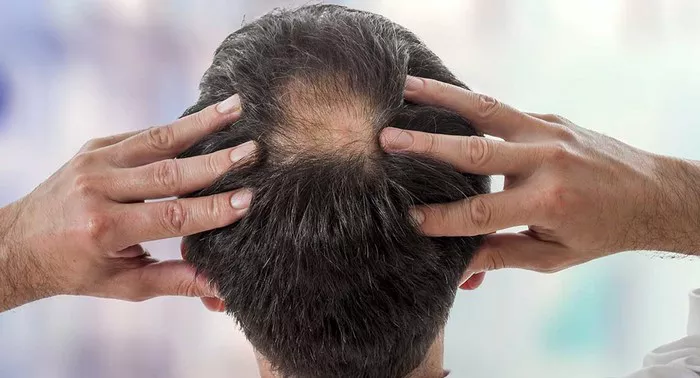Hair loss can be a distressing side effect of blood pressure medication, affecting both men and women. While managing hypertension is crucial for overall health, losing hair can significantly impact one’s self-esteem and quality of life. This article aims to explore the connection between blood pressure medication and hair loss, provide insight into why this happens, and offer practical solutions to mitigate this side effect.
The Link Between Blood Pressure Medication and Hair Loss
Why Does Blood Pressure Medication Cause Hair Loss?
Blood pressure medications, also known as antihypertensives, are essential for managing hypertension (high blood pressure). However, certain types of these medications can lead to hair loss. The primary reasons include:
1. Hormonal Changes: Some blood pressure medications can affect hormone levels, which in turn can impact hair growth. For example, beta-blockers and ACE inhibitors can interfere with androgen levels, leading to hair thinning or loss.
2. Nutrient Absorption: Antihypertensives may affect the body’s ability to absorb essential nutrients necessary for hair growth, such as zinc, biotin, and iron.
3. Scalp Blood Flow: Blood pressure medications can alter blood flow to the scalp, which may affect hair follicles and result in hair loss.
4. Stress Response: Managing a chronic condition like hypertension can be stressful, and stress itself is a well-known factor that can exacerbate hair loss.
Common Blood Pressure Medications Associated with Hair Loss
1. Beta-Blockers: Medications like propranolol and metoprolol can lead to hair thinning as they affect the hair growth cycle.
2. ACE Inhibitors: Drugs such as lisinopril and enalapril may contribute to hair loss through their impact on hormones and nutrient absorption.
3. Diuretics: Also known as water pills, diuretics like hydrochlorothiazide can lead to nutrient depletion, particularly zinc and potassium, which are vital for healthy hair.
4. Calcium Channel Blockers: Medications such as amlodipine can also be linked to hair loss, although this is less common.
Identifying and Addressing the Issue
Recognizing Hair Loss
The first step in addressing hair loss is recognizing it. Hair loss due to medication can manifest in several ways:
Thinning Hair: Overall thinning across the scalp.
Patchy Hair Loss: Small, coin-sized patches of hair loss.
Sudden Loss: Rapid shedding of large amounts of hair.
Consulting a Healthcare Professional
If you suspect that your blood pressure medication is causing hair loss, it is essential to consult your healthcare provider. They can:
Review Your Medication: Assess whether your current medication could be contributing to hair loss.
Offer Alternatives: Suggest alternative antihypertensive medications with fewer side effects.
Perform Tests: Conduct tests to rule out other potential causes of hair loss, such as thyroid issues or nutritional deficiencies.
Practical Solutions to Mitigate Hair Loss
Medication Alternatives and Adjustments
1. Switching Medications: Your doctor may prescribe a different class of blood pressure medication that is less likely to cause hair loss.
2. Dosage Adjustments: Sometimes, lowering the dose of your current medication can reduce hair loss without compromising blood pressure control.
See Also: How Long Do Alopecia Injections Last: What You Need to Know
Dietary and Nutritional Support
1. Balanced Diet: Ensure your diet is rich in essential vitamins and minerals that support hair health. Focus on foods high in zinc, biotin, iron, and omega-3 fatty acids.
2. Supplements: Consider taking supplements if you have deficiencies. Biotin, zinc, iron, and vitamin D supplements can be particularly beneficial.
3. Hydration: Staying well-hydrated is crucial for overall health and can help maintain healthy hair.
Topical Treatments and Hair Care
1. Minoxidil: An over-the-counter topical treatment that can stimulate hair growth and slow down hair loss.
2. Gentle Hair Care: Use mild shampoos and conditioners. Avoid excessive heat styling and harsh chemical treatments that can further damage hair.
3. Scalp Massages: Regular scalp massages can improve blood circulation to the hair follicles, promoting hair growth.
Stress Management
1. Exercise: Regular physical activity can help reduce stress and improve overall health, including hair health.
2. Mindfulness and Relaxation: Practices like yoga, meditation, and deep-breathing exercises can lower stress levels.
3. Adequate Sleep: Ensure you get enough sleep, as rest is crucial for recovery and overall well-being.
Medical Treatments and Therapies
1. Platelet-Rich Plasma (PRP): A treatment that involves injecting your own platelet-rich plasma into the scalp to stimulate hair growth.
2. Laser Therapy: Low-level laser therapy (LLLT) can improve hair density and reduce hair loss.
3. Hair Transplants: In severe cases, hair transplant surgery may be an option.
Long-Term Management and Prevention
Regular Monitoring and Follow-Up
1. Frequent Check-Ups: Regular visits to your healthcare provider can help monitor the effectiveness of your blood pressure medication and its side effects.
2. Blood Tests: Periodic blood tests can help detect any nutritional deficiencies that may contribute to hair loss.
Lifestyle Modifications
1. Healthy Diet and Exercise: Maintaining a balanced diet and regular exercise routine is vital for overall health and can help prevent hair loss.
2. Avoid Smoking and Excessive Alcohol: Both can negatively impact blood circulation and hair health.
Mental Health and Support
1. Support Groups: Joining support groups for people experiencing hair loss can provide emotional support and practical advice.
2. Counseling: Speaking with a therapist can help manage the emotional impact of hair loss and chronic illness.
Conclusion
Hair loss from blood pressure medication can be a challenging side effect, but it is manageable. By understanding the connection between antihypertensives and hair loss, working closely with healthcare professionals, and adopting a comprehensive approach that includes dietary support, stress management, and appropriate treatments, you can mitigate hair loss and maintain your health.
Remember, never stop or change your medication without consulting your healthcare provider. Addressing hair loss should be a part of a holistic approach to managing your blood pressure and overall health. With the right strategies, you can effectively manage both your blood pressure and hair health.


